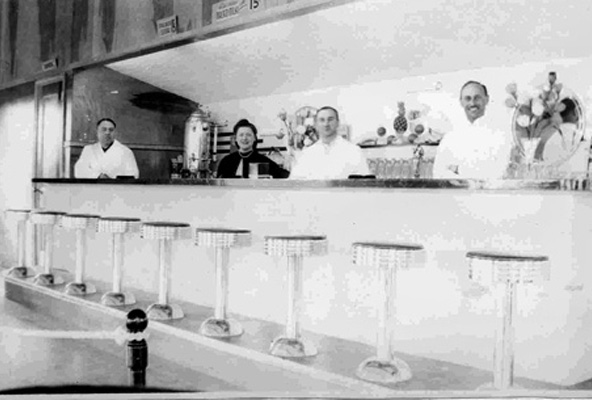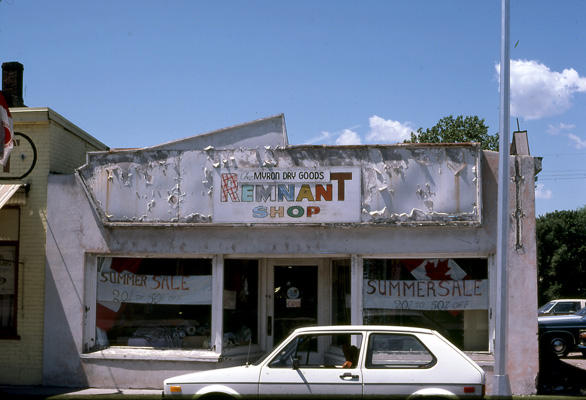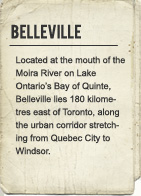Employment and Business
The Jewish businesses of the early community tended to be small shops. General stores, second hand shops, and clothiers were common. The Burkes had a high quality men’s wear store. A small number of families, including the Goodmans, were involved in the fur business, trading directly with the indigenous trappers of the nearby Mohawk Territory at Deseronto reservation and preparing the hides for market. Abraham Albert owned a second-hand shop on Front Street, beginning in 1914. Shortly after, he and his family moved to Lindsay and later Toronto and Trenton, before finding their way back to Belleville during the 1940s.
Often at this time, the Jewish businessmen delved into several trades. The plumbers Diamond and Hyde, Hyman the furrier, Goodman's Junk Shop, Springer’s second-hand goods, Jack Diamond’s general store and Goldberg the cobbler were included among the Jewish businesses listed in the city in 1924. Frequently recounted among the stories of Jewish businesses in Belleville and Trenton is the theme of resourcefulness and creativity during the economic hardships between the wars. Joe Diamond made his living with a barrel organ and a tip-collecting monkey.
Harry Burke had established himself in Belleville as a men’s clothier in the 1920s but fell on hard times during the Depression. When he lost his initial business, Burke established a hamburger stall from his home on Bridge Street, starting as the Classy Lunch stand before earning local renown as Harry Burke’s Hamburgers in the 1930s. He sold his “tailor-made” deluxe hamburgers (the slogan comically referring to his previous trade), until 1955, when the family moved to Toronto. Harry’s son, Joe Burke, stayed in Belleville and worked as an office boy for the railroad before going into business as a men’s clothier, following the family line, both with Goodman’s and opening various businesses of his own including Joe Burke’s Men’s Apparel on 257 North Front Street.









